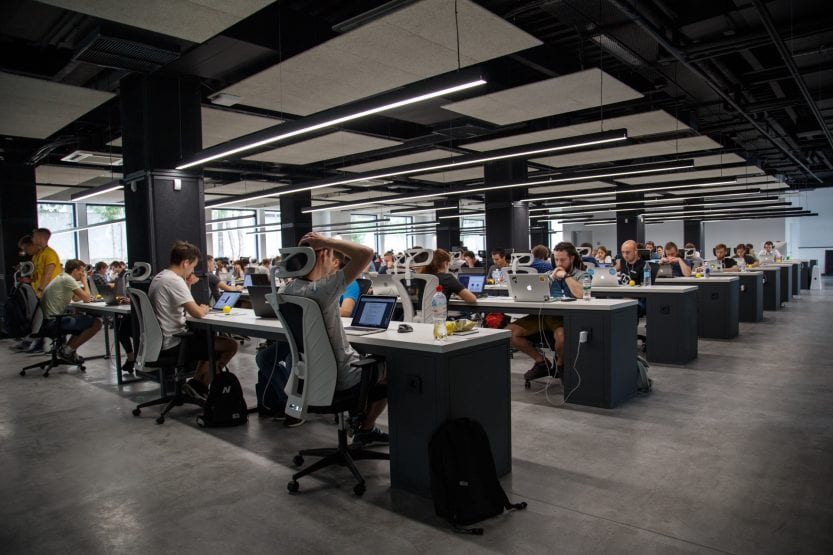The UbiComp community has created new technologies enabling brand new applications not possible before. For example, new sensing, machine learning and data analytic technologies have advanced health, transportation, and sports, and have developed new tools to assess human behavior in the wild.
As technology inches into every aspect of our lives, there is no place more likely to dramatically change in the future than the workplace. Today, technology enables globally distributed teams to efficiently collaborate across different time zones for the purpose of launching new products. The term “workplace” no longer means assembling in one physical space for work. Rather, we work everywhere: the train, at home, the coffee shop. Our understanding of the office, laboratory and factory will radically change over the next decade. New forms of work contracts typified by the gig economy (characterized by short-term jobs as opposed to traditional permanent jobs) demand even more flexibility for both workers and employers. Massive automation is likely to emerge over the next decade.
Recently, a number of funding agencies and companies have launched new programs to help drive research ideas in this space. In the USA, the NSF Future of Work program is funding teams to investigate new socio-technological advances in the workplace. Another example is the IARPA MOSAIC program, which is studying new approaches to assessing job performance.
We are starting to see research papers on the future of work at various conferences. Various projects have just started or are on-going. We believe it is a good time to have a workshop at UbiComp with focus on topics the conference is typically interested in. This will be an opportunity to bring people together and see where people are and what are the challenges going forward. The goal of this workshop is two fold. First, to bring together UbiComp researchers broadly interested in future technology @ work; essentially interaction between attendees and exchange of ideas and challenges in this emerging area going forward. We invite short (2 page) position or research papers on topics mentioned here. Second, we plan to release an open workplace performance-based dataset on Kaggle for a data challenge with a prize (still to be determined).
